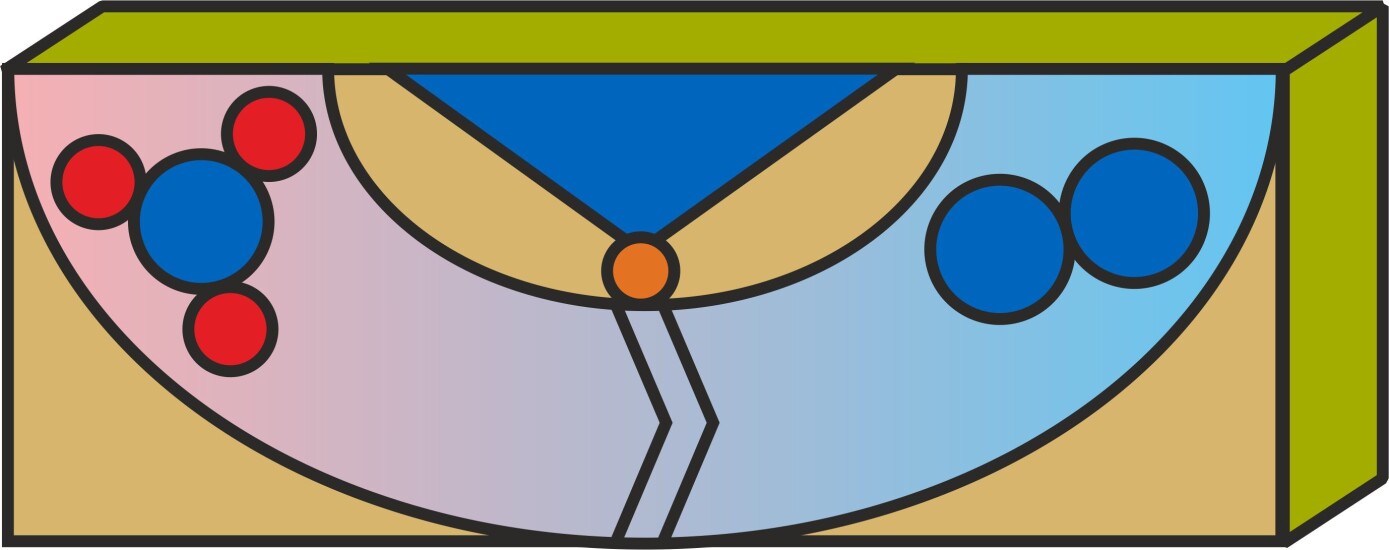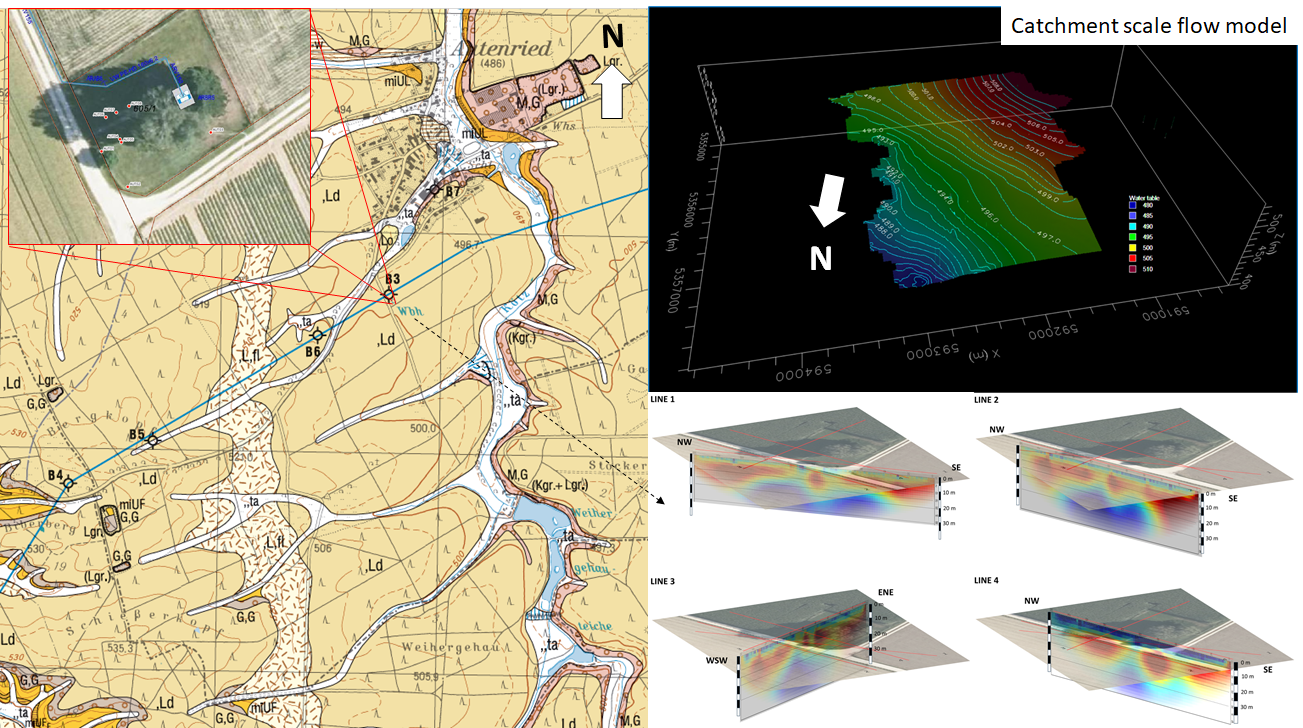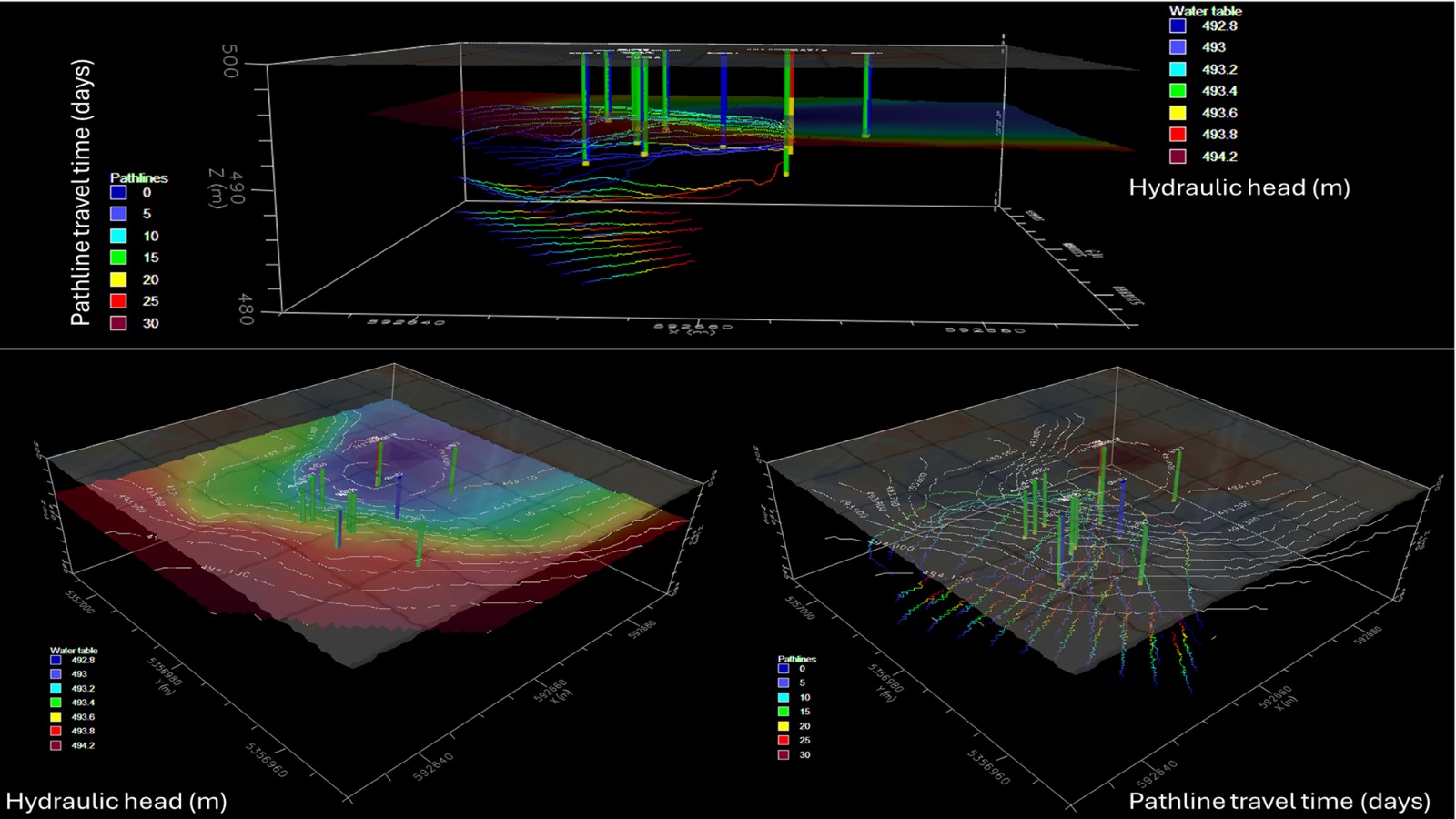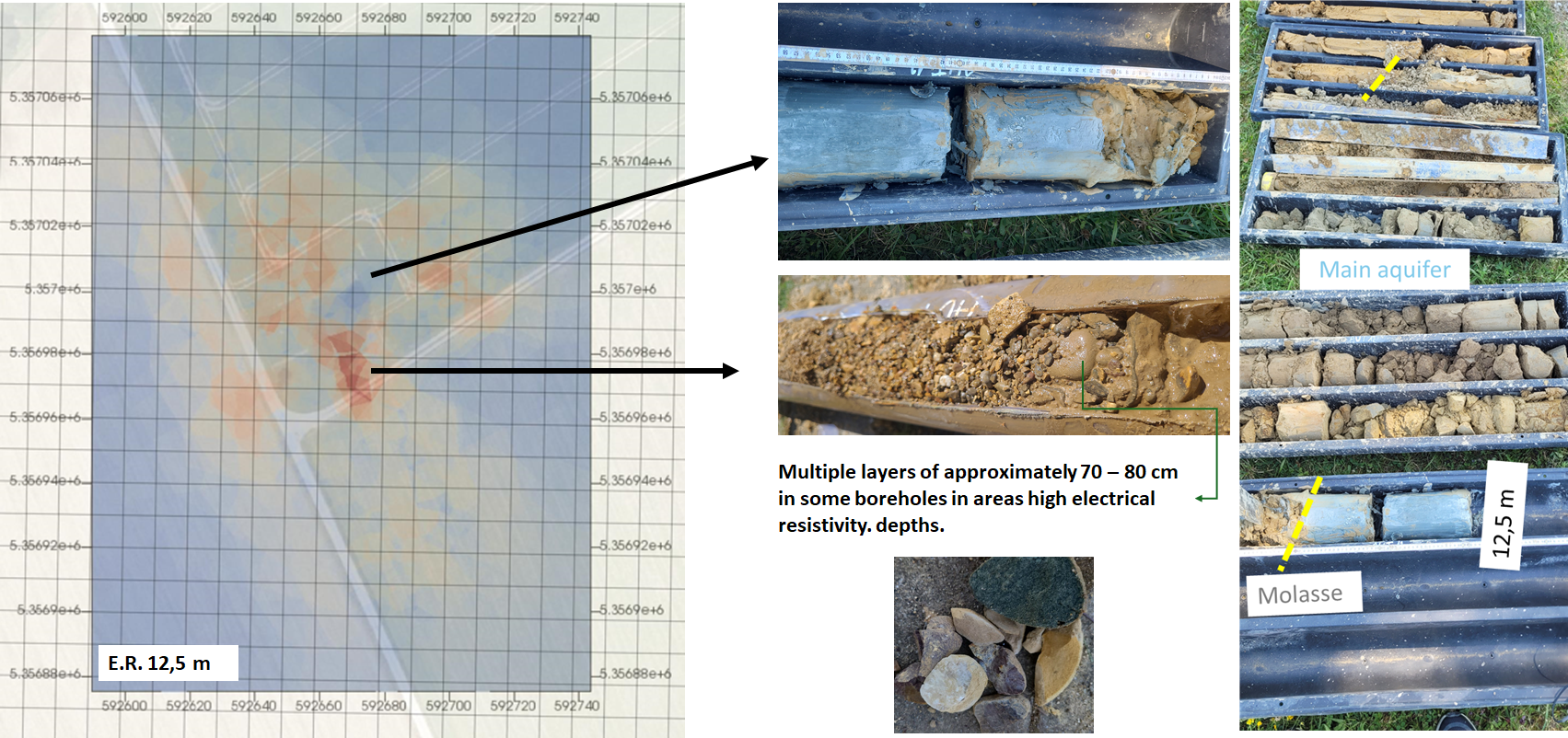
NitratLurch
Stimulation of H2/CH4 oxidizing bacteria in pore aquifers for purification of nitrate-polluted drinking water and process water
February 2023 - August 2027
Context
The changes in the water cycle caused by climate change call for sustainable management of our water resources. Groundwater is the most important drinking water resource in almost all European countries. As a rule, only near-surface aquifers with high groundwater recharge can be managed sustainably. However, these often have high nitrate contamination. The required self-purification potential against pollutants such as nitrate is often limited by the lack of microbially available electron donors, so that despite a reduction of nitrogen inputs via agriculture, elevated nitrate concentrations can still be observed in aquifers for decades.
Stimulation of denitrifying microorganisms via addition of hydrogen (H2) and methane (CH4) has the potential for significant nitrate reduction in groundwater and could significantly reduce nitrate concentrations in a variety of impacted production wells.
The proposed project will develop, optimize, and monitor the efficient injection of H2 and CH4 gases and record their degradation potential relative to dissolved nitrate in groundwater. First, the degradation potential will be tested in a flume test and later, in cooperation with a regional water supplier, in a test facility at a field site. The project thus develops an active, minimally invasive stimulation of existing ecosystem services on the basis of a natural analysis of nitrate turnover in groundwater and offers the possibility of a socially and economically relevant use of the technology directly following the project.
Project goals

NitratLurch aims to:
(i) Optimize microbially induced denitrification across scales, from microcosm to catchment;
(ii) In situ stimulation of existing ecosystem potential in its real-world complexity, offering the possibility of a socially and economically relevant use of the technology directly following the project.

Methodology
The project is largely based on data consolidation of a flume experiment, microcosm (bioreactor) and in situ hydrogeological characterization in order to form the basis for an effective and optimized remediation design based on stimulation of local microbiota through gas injection in a complex aquifer matrix.
The study site, located in the Autenried, Bavaria - Germany, which houses a 430 m³/day drinking well source impacted by high nitrate concentrations, currently unavailable for drinking water purposes.
The project has refined the local hydrogeological conceptual model with new piezometer infrastructure and installation of chemical species (NO3, DOC, O2) and hydraulic head sensors. A catchment-scale groundwater numerical flow model was produced which can then be used for large scale application of the remediation technique or long term water resource management for the Autenried province.
Local scale reactive transport models are being developed to account for both the hydraulic and geochemical complexity of the remediation design in the study area, which currently advances to the phase of injection well system installation.

Project partners
Coordination
Prof. Dr. Florian Einsiedl
Technical University of Munich (TUM), Faculty of Civil and Environmental Engineering, Hydrogeology Group
E-Mail: f.einsiedl@tum.de
Collaborative partners
Helmholtz Center for Environmental Research (UFZ), Leipzig (Numerical modeling)
University of Bayreuth, Bayreuth Center for Ecology and Environmental Research (BayCEER)
BASE TECHNOLOGIES GmbH, Munich
Z-DESIGN Dipl.-Ing. Werner Zyla GmbH, Owingen a. Lake Constance
Funding
NitratLurch is funded by the Federal Ministry of Research, Technology and Space (BMBF)

Contact
PI: Prof. Dr. Florian Einsiedl Technical University of Munich (TUM), Faculty of Civil and Environmental Engineering, Hydrogeology Group - f.einsiedl@tum.de
Co-PI: Prof. Dr. Jan Fleckenstein (UFZ) - jan.fleckenstein@ufz.de
Guest scientist: MSc Vinícius Falchi Bernardo (UFZ)
vinicius.falchi-bernardo@ufz.de
